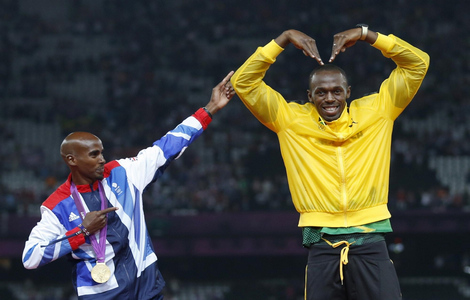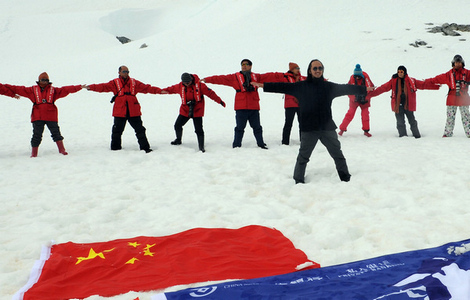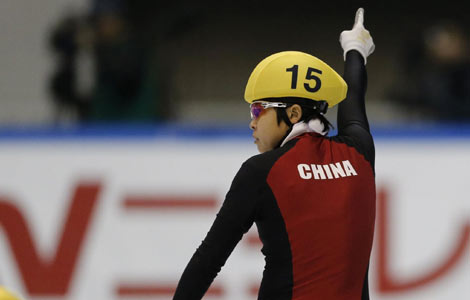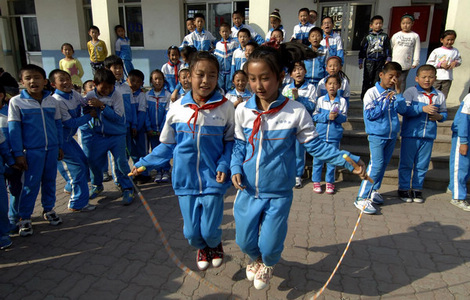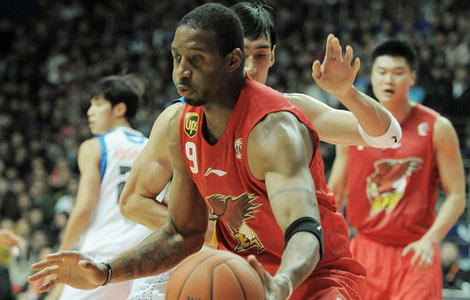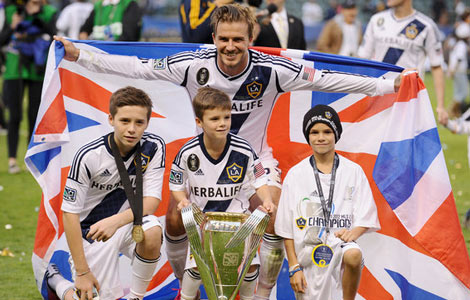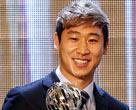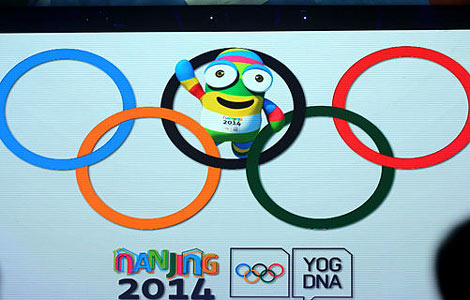
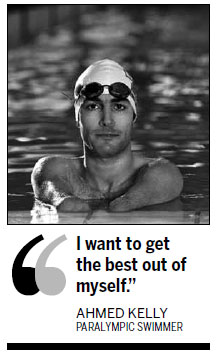
He has described himself as the happiest man alive, yet in 20 years, Iraq-born swimmer Ahmed Kelly has risen above extreme hardship to become one of Australia's leading medal hopes at the London Paralympics.
Kelly, along with his brother Emmanuel, was born severely disabled, with under-developed limbs as a result of their parents' exposure to chemical weapons.
He was left on an orphanage doorstep in Baghdad, a world away from the Aquatics Centre pool that he will dive into for his 100 freestyle, 50 breaststroke and 150 individual medley events starting next week.
In 2000, the boys were brought to Australia for surgery and were adopted by humanitarian Moira Kelly, who would later add Trishna and Krishna to the family, conjoined twins who were separated in a groundbreaking surgery in 2009.
Kelly took to Australia's sports-mad culture with gusto, and loved playing Australian Rules football with prosthetic limbs.
But the high-contact indigenous football code took a toll on his body, and he later took up swimming after participating in the Australian Paralympic Committee's talent identification program.
Kelly, who swims with prosthetic legs but without arms, was paired with coach Brad Harris, who has helped him channel raw determination into stunning success.
"When we started, I had a guy with no arms and legs who wanted to be the best he could be," Harris said.
"There's nothing too hard for him ... He'll always say yes."
Kelly soon began competing at an elite level and broke the world record in the 100 breaststroke in 2010 and 2011.
Now, only four years after he first began swimming, the 20-year-old is competing in his first Paralympics.
The journey to London has been far from easy.
To qualify, Kelly has had to shift from racing the 100 breaststroke - an endurance event in Paralympic terms - to sprinting in the 50 distance.
While mastering the new discipline and training hard in his other events, Kelly has had to juggle school work while supporting his mother's charity, the Children First Foundation.
"It has been difficult, but you have to do your best," Kelly said. "It's tough, but it's meant to be tough ... You have to know what you're doing every lap for."
Kelly and his coach Harris remain as ambitious as ever.
"I love sports, I want to keep swimming well, keep adapting, and I'm still learning about these things," said Kelly, who has already set his sights on competing at the 2016 Paralympics in Rio.
"I want to get the best out of myself. But everyone has been so supportive and I couldn't have done it without them."
Reuters in Melbourne
